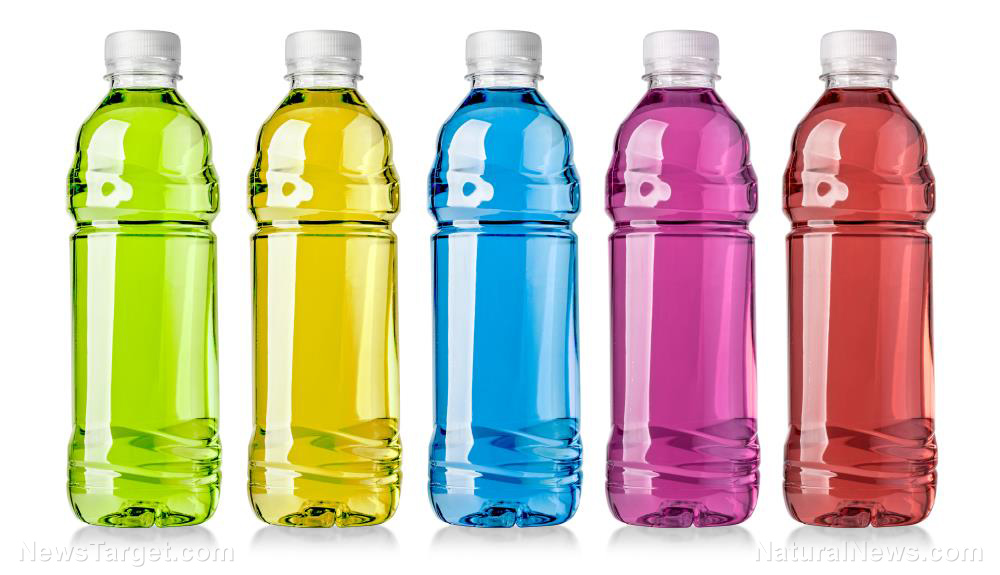
Advertisement
Both fruits and sweetened beverages — which include soda and sports drinks — have fructose, also known as fruit sugar. However, fruits also contain dietary fiber which helps counterbalance the effects of fructose, something that the latter does not have. In a review published in the journal The BMJ, scientists found that consuming these sugary drinks can increase your risk for Type 2 diabetes.
The dangers of sugary beverages
For the review, Dr. John Sievenpiper and his fellow researchers from the University of Toronto in Canada analyzed data from 155 nutritional studies on 5,086 individuals. The study included people with and without diabetes, measuring how blood glucose levels responded from various food sources of fructose, with the average follow-up ranging from one to 76 weeks.
The findings suggest that fructose from fruit, fruit juices, and other natural sources are less likely to increase risk factors related to Type 2 diabetes, unlike fructose found in sugary beverages. The simple sugar fructose is naturally found in fruits and vegetables. However, it’s also used in high-fructose corn syrup (HFCS), which is used to sweeten beverages like sodas. Sievenpiper, the study’s lead author and an endocrinologist at St. Michael’s Hospital, explained that when sugars provide excess calories, they may have negative metabolic effects that can increase your risk for diabetes. He also added that the effect was mostly observed in sugar-sweetened beverages which don’t have any nutritional value.
These sweetened drinks increased both glucose and insulin while also providing excess calories. Since none of the studies included in the review measured Hemoglobin A1c (HbA1C, a two- to three-month average of an individual’s blood sugar level), the researchers are unable to determine the effect of excess calories on HbA1C. But the research team warns that the negative side effect calories on glucose and insulin would also have an adverse effect on HbA1C.
Can the consumption of fruit lower diabetes risk?
Sievenpiper said that even though fruits contained excess calories, they don’t negatively affect glucose or insulin. People with diabetes can consume fruit in moderation, especially if they want to control their blood sugar.
Dr. Osama Hamdy, medical director of the obesity clinical program and director of the inpatient diabetes program at the Joslin Diabetes Center at Harvard Medical School in Boston, said that fruit can also help boost the intestine’s microbiota or the microorganisms that live in the gut. Fructose from natural sources like fruit also functions as a soluble fiber, which can help slow the absorption of fructose and reduce “bad”/low-density lipoprotein (LDL) cholesterol.
According to the American Diabetes Association, people should refrain from drinking sugar-sweetened beverages like energy drinks, fruit punch, soda, and sweet tea. Aside from raising blood sugar, sugary drinks can also add hundreds of empty calories to your diet. (Related: Sports and energy drinks are ‘essentially sodas without carbonation,’ state researchers exploring health risks of sugary beverages.)
Empty calories are linked to weight gain, and being overweight is a risk factor for developing diabetes. If you need an energy boost, switch to natural energy-boosting options like:
- Bananas
- Caffeine
- Coconut water
- Homemade energy drinks (made with water, orange juice, maple syrup, and organic salt)
- Raisins
Sievenpiper warned that even though fruit is beneficial, fruit juice contains excess calories. He noted that you can consume at least half a cup of natural fruit daily if you use to complement a diet full of whole fruits and vegetables.
Dr. Jan Rystrom, a registered dietitian and diabetes educator at the Swedish Medical Center who was not involved in the study, added that fructose’s effect on overall health deserves further analysis. She added that as a food additive, “fructose has a cumulative effect in tissue, particularly in the lens of the eye.”
Several studies suggest this accumulation of fructose in lens tissue is linked to the development of cataracts, a common health complication of diabetes.
If you wish to lower your diabetes risk, Dr. Hamdy suggested that you consume more whole fruit instead of drinking fruit juices. Limit your intake of foods that contain refined sugar, like cake, cookies, and candy.
Always choose natural sources over sweetened beverages, and don’t overconsume whole fruit to stay healthy.
Sources include:
Advertisements







